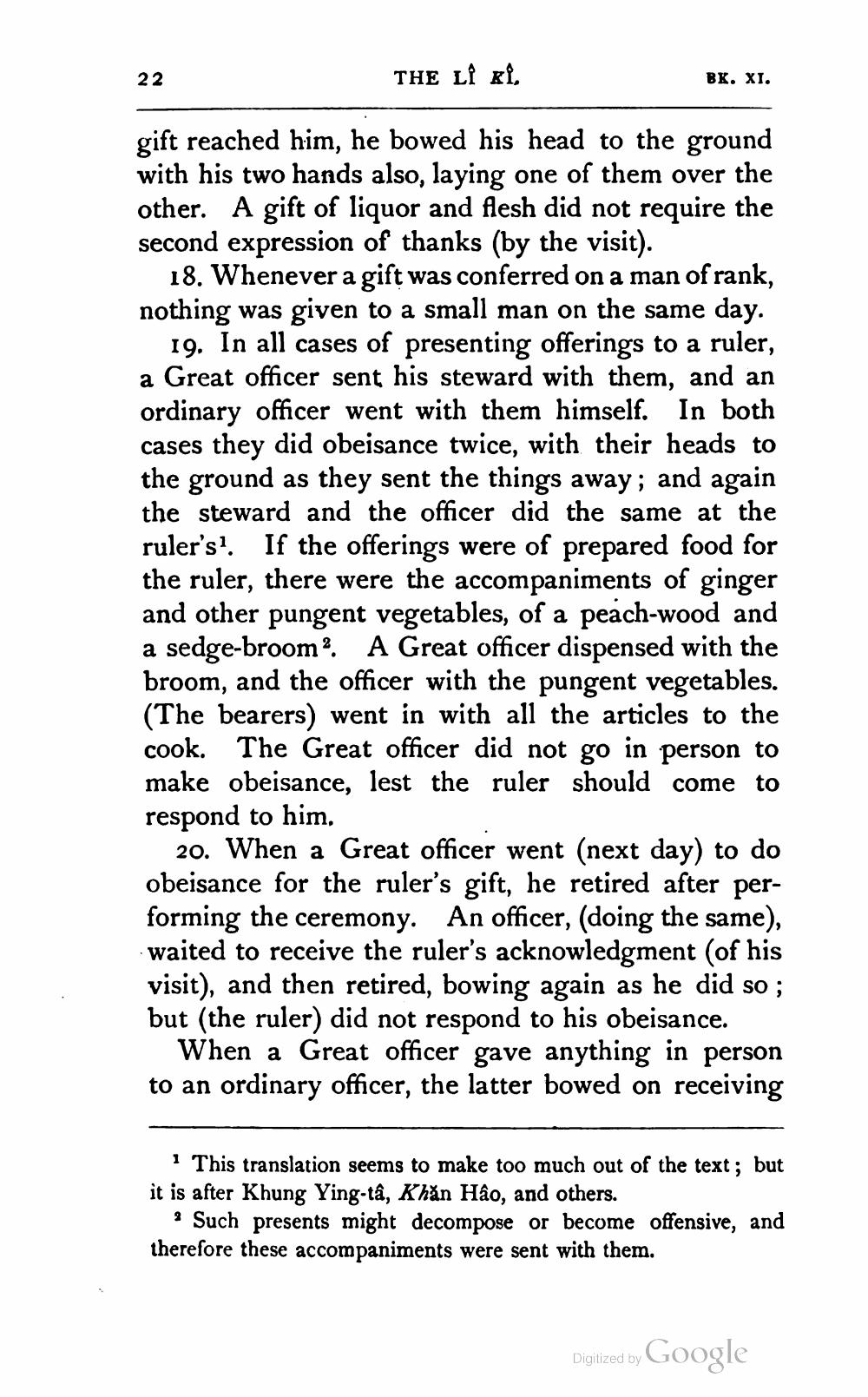________________
2
THE LÎ xi.
BK. XI.
gift reached him, he bowed his head to the ground with his two hands also, laying one of them over the other. A gift of liquor and flesh did not require the second expression of thanks (by the visit).
18. Whenever a gift was conferred on a man of rank, nothing was given to a small man on the same day.
19. In all cases of presenting offerings to a ruler, a Great officer sent his steward with them, and an ordinary officer went with them himself. In both cases they did obeisance twice, with their heads to the ground as they sent the things away; and again the steward and the officer did the same at the ruler's?. If the offerings were of prepared food for the ruler, there were the accompaniments of ginger and other pungent vegetables, of a peach-wood and a sedge-broom. A Great officer dispensed with the broom, and the officer with the pungent vegetables. (The bearers) went in with all the articles to the cook. The Great officer did not go in person to make obeisance, lest the ruler should come to respond to him.
20. When a Great officer went (next day) to do obeisance for the ruler's gift, he retired after performing the ceremony. An officer, (doing the same), waited to receive the ruler's acknowledgment (of his visit), and then retired, bowing again as he did so ; but (the ruler) did not respond to his obeisance.
When a Great officer gave anything in person to an ordinary officer, the latter bowed on receiving
1 This translation seems to make too much out of the text; but it is after Khung Ying-tâ, Khăn Hảo, and others.
Such presents might decompose or become offensive, and therefore these accompaniments were sent with them.
Digitized by Google




